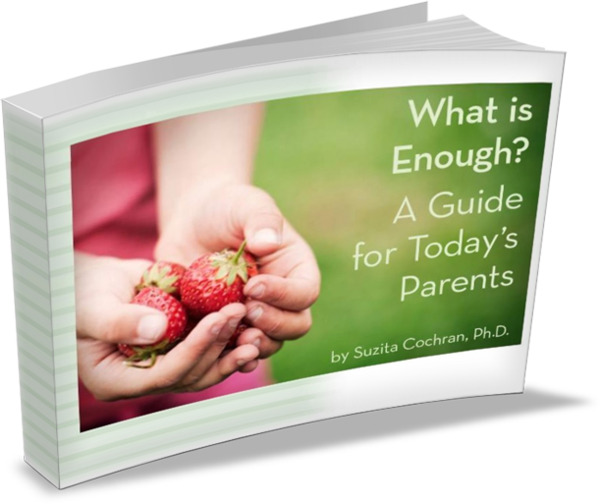 My stepfather, Dan, passed away last June and I dearly miss him. The most recent reason is that he was the person I’d phone first when I’d failed at something.
My stepfather, Dan, passed away last June and I dearly miss him. The most recent reason is that he was the person I’d phone first when I’d failed at something.
Dan entered my life when I was 9 and heavily into my gymnastics phase. I recall being asked later, as a 12 year-old, what I wanted to be when I grew up. “A gymnast,” I responded. I actually have this written down in my curlicue handwriting of the time, so I can’t dispute it! A gymnast? For a career? You can see how deeply into the sport I was.
Dan sensed this too. His life had not taken a conventional course. He’d grown up during the Depression and had sold vegetables door to door as an 8 year-old to earn money for his family. Later, he’d lied about his age and joined the Air Force, learning to fly before he could drive. Dan never graduated from high school, but could multiply 4-digit numbers together in his head. After an Air Force career he ran a successful camping and outdoor equipment store.
Dan understood there were numerous paths to a good life, and he saw that I hadn’t learned this yet. My “all eggs in one basket” gymnastics intensity concerned him. So he drew up a plan.
After my gymnastics meets, rather than asking what went well, he’d ask what went wrong. When my routines had ended badly, he’d request a detailed description of my fall off the narrow high beam, or exactly how hard I’d landed on my purple leotard-covered bottom after the unsuccessful vault.
Then he’d respond, “Yeah, you’re right. That was a real failure. That was a good one. A memorable one. I think that one is worth some money.”
I remember my shock the first time Dan said this. I happily accepted the cash. It wasn’t much, but enough to make his point.
He explained to me that it was vital to learn how to fail. But, he clarified, he wasn’t talking about any run-of-the-mill failure. It only counted as a good failure, when you’d really tried hard for the goal, really wanted it, then failed. “Those are the ones worth money.”
As I moved out of my gymnastics phase and into a fairly intense academic experience in high school, Dan observed that it was becoming harder for me to take risks that might potentially hurt my G.P.A. He was often the sole voice reminding me it was imperative to try new things. “Remember, a good failure is worth money.”
And I did produce some good failures over the years. There was that C in calculus senior year of high school. That was painful. I accepted some money for that one. Dan’s plan didn’t end in high school, either. When I’d call home from college he would faithfully inquire, “Any good failures I should know about?”
The last time I received a failure payment was when my first professional article, based on my dissertation, was rejected by the journal I’d hoped to publish it in. I got a fairly substantial check for that one.
As the years passed, it wasn’t so much receiving the failure compensation (although honestly the cash did soften the blow), but knowing there was someone who wanted to hear about my failures, which made an impression. Dan would quickly put my current disaster into perspective, usually remind me of one of his doozies, and generally impart the message that it’s okay to discuss these things. We don’t need to hide them.
I want my kids to learn this failure lesson too. Rabbi Harold Kushner of When Bad Things Happen to Good People, says people who achieve everything they set out to in life obviously have set the bar too low. And that those who are never disappointed are the real failures. Dan would have agreed.
However, I have yet to instill the payment for failure system at our house. Looking back I realize that, being a step-parent, Dan was in the perfect position to pay us for failing (as long as my mother agreed, and she did). It’s trickier for a child’s actual parent to pay them for failing.
I’m not giving up on this yet! Perhaps I’ll recruit a family friend, or maybe an aunt or uncle to play this role for my children. And if that doesn’t take, I’ll talk regularly to my kids about Dan’s influence on me in this area. Maybe we’ll create a Dan Failure Payment and give it in his honor when “a good failure” occurs.
I’m also aware that this payment plan would only work with certain types of kids. I have yet to discern which of mine would benefit from this backward reward system (though day by day it’s becoming clearer).
Not only did my stepfather’s unique way of looking at life ease the pain of my failures and teach me to learn from them, but it encouraged me to try new things. (Remind me to tell you about my bicycle trip across the U.S. with my best friend when I was 16, an adventure much supported and cheered on by Dan.)
I won’t say I’ve completely lost my fear of taking substantial risks (and failing), but I’ve gotten much better at it. You might say it’s become a skill.
Would this work in your home? Leave a comment below!

 Sweet Spots: Helping Your Kids Find ENOUGH in Their Lives.
Sweet Spots: Helping Your Kids Find ENOUGH in Their Lives.


What a refreshing point of view to learn that failure is not the end of the world but can open many new doors. I enjoyed reading it.
I see my kids (who are still very young) struggle with mistakes and failures and it does indeed feel incredibly important to normalize failure for them. I don’t know what the method is exactly that would work in our home, but I love the ideas here and I’ll be looking for opportunities to experiment (and experience some failures of my own, I’m sure).
I think I have a child that would benefit from Dan’s method. I agree that it may not work coming from a parent though.
These days “academic” kids tend to set the bar too high for themselves and a less than perfect result is “catastrophic.” At those moments I could use some of Dan’s wisdom.
I know. We need more Dans putting this alternative message out there.
This parenting stuff, it’s not for the faint-hearted!
Suzita
What an innovative way to console a child who has failed yet encourage attempts at the unfamiliar. Thanks for sharing this idea.
This is wonderfully eye-opening! Being averse to taking risks myself, I don’t do a good job encouraging my children to take risks. I really like this perspective of Dan’s. I wish he could have read this 🙂
I love this perspective and what a relief in a way to know it’s ok to fail. Kids today feel so much pressure to be amazing and to do well, that I”m sure they suppress their failures, or let them really effect their self esteem.
What about instead of paying your children, but having a failure jar and putting money in community jar whenever their is a worthy failure. You could use the money in the jar to take the whole family out to dinner for a failure celebration.
This also reminds me of this article that I read-where children these days are applauded for everything, even if they aren’t really that good at it. Check it out:
http://www.ednewsparent.org/teaching-learning/2533-michelle-rhee-spurs-school-parents-to-action
Thanks for the good ideas. I’ll read this article. I really like ednewsparent’s stuff!
I really like the reminder from Rabbi Kushner. It’s so easy to stick with the safe rut. My 4 year old sometimes gets so frustrated when she’s trying to draw something and it doesn’t come out perfectly, and we’re trying to come up with tools to help her learn that a) few people do things perfectly from the get go and b) there’s value in the effort of trying (and as Dan might add, also in the failure that can follow trying). Not sure the $$ will work just yet, but the lesson is there…
This was just *exactly* what I needed to read today. How did you know? 😉
Thanks. Dan sounds like a very special person.
I was reading the book, Nurture Shock, by Po Bronson and Ashley Merryman recently. Chapter 1, The Inverse Power of Praise, made me think of Dan and smile. In a nutshell, the authors sited research that shows that when a child is overpraised, praised in generalities , and praised for successes (ie. “You’re so smart. I’m so proud of you. You do so well in school.”, etc.), it actually can result in a child who begins to fear risk-taking, rather than build their self-esteem which is what we parents think we are doing. The authors explain it in more detail, but one result is children cheating by the junior high years. As the authors say, “Students turn to cheating because they haven’t developed a strategy for handling failure. The problem is compounded when a parent ignores a child’s failures and insists he’ll do better next time. Michigan scholar Jennifer Cocker studies this exact scenario and explains that the child may come to believe failure is something so terrible, the family can’t acknowledge its existence. A child deprived of the opportunity to discuss mistakes can’t learn from them.” (pg. 22) Dan knew the power of failure and blessed you with the “Gift of Failure.”
Thanks so much for this comment! Nurture Shock is now on my list. Martin Seligman also writes about this type of research in The Optimistic Child: Proven Program to Safeguard Children from Depression and Build Lifelong Resilience. But I look forward to reading more! Thanks for listing so much info. here. I really appreciate it.
Brilliant. I love the payment scheme. Skaters & snowboarders are great at encouraging epic fails (as they’re called now)–it means you really went for it.
And with kids, it’s crucial to let them fail when the stakes are small (pee wee sports) so they can deal with it when they’re big (businesses, marriages, etc.).
Gosh. What a lovely idea. I guess we can sometimes try so hard to protect our children, and ourselves, from anything where we risk failure, that we can end up never really succeeding in anything truly worthwhile.
(I remember Dan.)
My oldest daughter is a perfectionist and a worrywart. I have really enjoyed reading this article – as it gives me some advice on how to best handle her. I had, at the beginning of the school year, promised her a party with all of her favorite things when she finally comes home with “the dreaded C”. I told her – because it will mean she is NORMAL. Because all people mess up sometimes and it is certainly okay to mess up.
I really like the idea of celebrating these epic failures – to put them in perspective and move on from them. Thanks for the wonderful article.
I like your idea of a party with all your daughter’s favorite things! I bet that gave her the same message that Dan’s system gave me. I’m impressed you did that. This situation takes some creativity on the parent’s part doesn’t it?
Good luck to you both!
Suzita
I love the idea when you have the right kind of kid for it as you suggested. That system wouldn’t work for my son exactly but we do a similar thing. As he has severe anxiety disorder, we have to work really hard to ‘normalise failure’ so that he doesn’t have a meltdown every time he deems he’s made a mistake. We have recently gone from a full on reward system to no reward system at all (that’s not entirely true, but too long to explain in a comment!). It’s so important for kids to understand that failure is a part of learning, and that it’s OK to do it. For now, when our son says, “But I failed! I am hopeless!” We reply. “You didn’t fail. You practiced, it didn’t work out. You learnt how not to do it next time. Therefore, you have succeeded at learning!”
I love this!